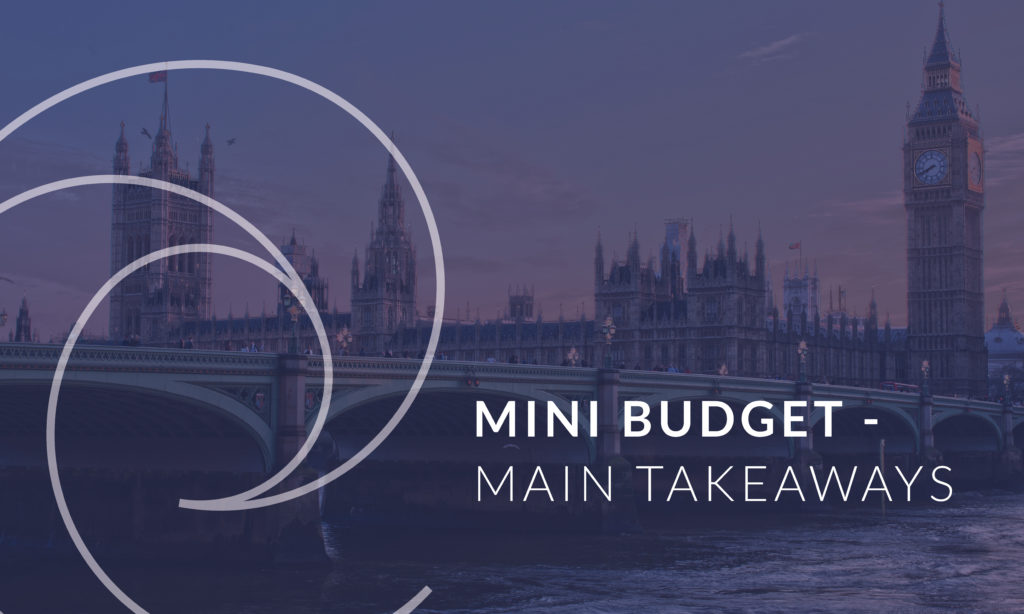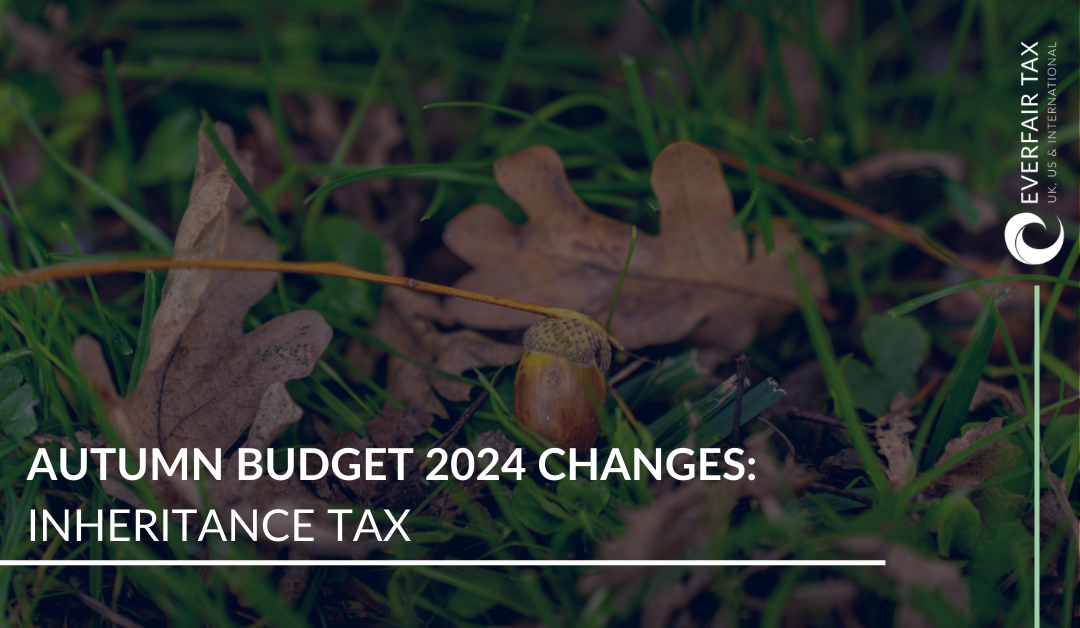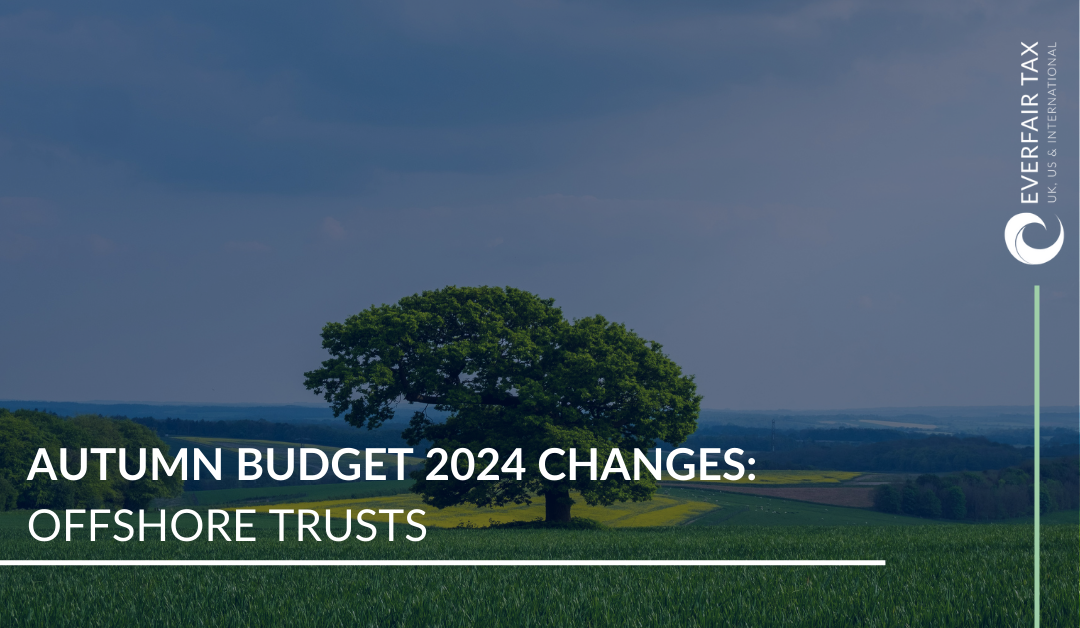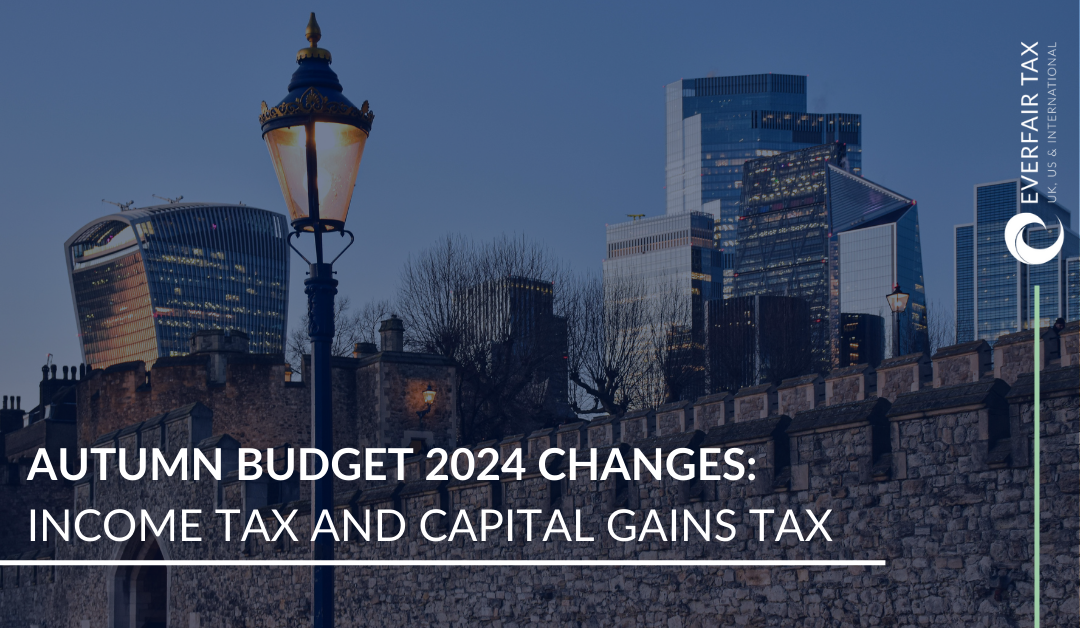Mini-Budget September 2022
23 September 2022
Main Takeaways
Starting the tenure of the new PM Liz Truss, and his own, with a bit of a bang, the Chancellor Kwasi Kwarteng this morning delivered what was originally labelled a mini-budget.
The policy changes announced really weren’t so mini after all, as they included some big tax cuts as part of what was described in follow up documents as the Government’s Growth Plan for the economy and the country.

For individuals there is a drop in the basic rate of income tax by 1p to 19p and the abolition of the 45% tax rate on income over £150,000 from April 2023.
Less surprisingly, the 1.25% heath and social care level applicable to dividend income is to be cancelled from 6 April 2023.
The level at which house-buyers begin to pay stamp duty also doubles from £125,000 to £250,000 and first-time buyers will pay no stamp duty on homes worth £450,000, up from £300,000, effective from today.
To support businesses and encourage investment and growth, the planned rise on corporation tax from 19% to 25% is scrapped and the 1.25% rise in National Insurance is to be reversed from 6 November. Alongside this, the government announced they will make permanent the temporary £1 million level of the Annual Investment Allowance (AIA), which was due to expire after 31 March 2023. This means businesses can deduct 100% of the costs of qualifying plant and machinery up to £1 million in the first year.
In a move likely to be welcomed by entrepreneurs and investors, the government restated its commitment to the Enterprise Investment Scheme beyond it’s currently stated end date of March 2025 and made a number of changes to the Seed Enterprise Investment Scheme (SEIS). For SEIS eligibility the company will now have to have been trading for less than three years compared to the previous two and will be able to have net assets of up to £350,000 instead of £250,000. The amount a company can raise through SEIS has increased to £250,000 from £150,000 and the individual investor limit has been increased from £100,000 to £200,000. The limit on the values of shares that can be held by an employee under Company Share Option Plans (CSOP) was doubled from £30,000 to £60,000.
The off payroll working rules for both public and private sector worker which extended the reach of IR35 will no longer be in place from April 2023, allowing a return to a situation where those working through personal service companies to determine their own employment or self employment status. This is likely to be a welcome reduction in administration for companies using consultants who operate in this way.
Perhaps controversially, a cap on bankers’ bonuses, which limited rewards to twice the salary level, was also axed.
This is all on top of the originally announced plan to subsidise both domestic and business energy bills which will cost £60bn for the next six months.
These tax cuts will come at a high cost, especially as there was also a commitment to maintain the investment in the NHS at the level expected to be funded by the Health and Social Care Levy. The Chancellor however clearly believes that the borrowing will be worth it, amidst the landscape of high inflation and its impact on the cost of living and in time he hopes these changes will provide to be the right way to stimulate growth.
News
For updates featuring tax changes, reminders for deadlines, pointers on how to maximise your accounts, and information on Everfair Tax and their activities: you need look no further than our news & resources pages.
Contact Us
Need some UK, US or International advice?
Contact us now.
Weybridge Office
Ground Floor, 37a Church Street
Weybridge, Surrey KT13 8DG
Tel: 01932 320 800
London Office
40 Gracechurch Street,
London, EC3V 0BT
Tel: 020 3949 5999
Email: info@everfairtax.co.uk


